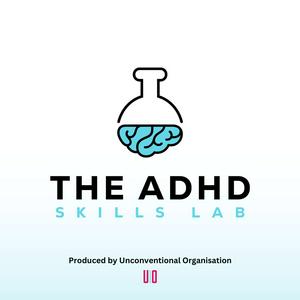“I wasn’t failing. I just wasn’t growing.”
Adam Tasker had the career. The family. Three kids. Responsibility handled.
But privately, he knew he was drifting.
After being diagnosed with ADHD as an adult, following his sons’ diagnoses, he began to look at how he was operating. Not just as a father, but as a leader. At home. In business. With himself.
In this conversation, Skye and Adam unpack:
What actually changes after a late ADHD diagnosis
How overwhelm escalates and why some days collapse fast
The identity shift from practitioner to leader in business
Delegation, emotional regulation, and being the tone-setter at home
They talk through structure, routines, communication, and the tension between flexibility and discipline in a neurodivergent household.
This episode is not about productivity hacks.
It is about responsibility, self-awareness, and learning to lead without burning out or defaulting to shame.
If you are a parent, a founder, or someone who knows you are capable of more than “going through the motions,” this conversation will resonate.
Connect with Adam Tasker, COO of High Performance Father, at https://highperformancefather.com or email him directly at
[email protected] for resources and support.
P.S. If your ADHD symptoms turn every business day into chaos—unfinished tasks piling up, revenue stuck, systems that don't stick—it's not you. It's your operating system. We help service business owners unblock their next $50-500k with simple systems that focus their brain. Watch this video to see how we do it, then take the program walkthrough.


